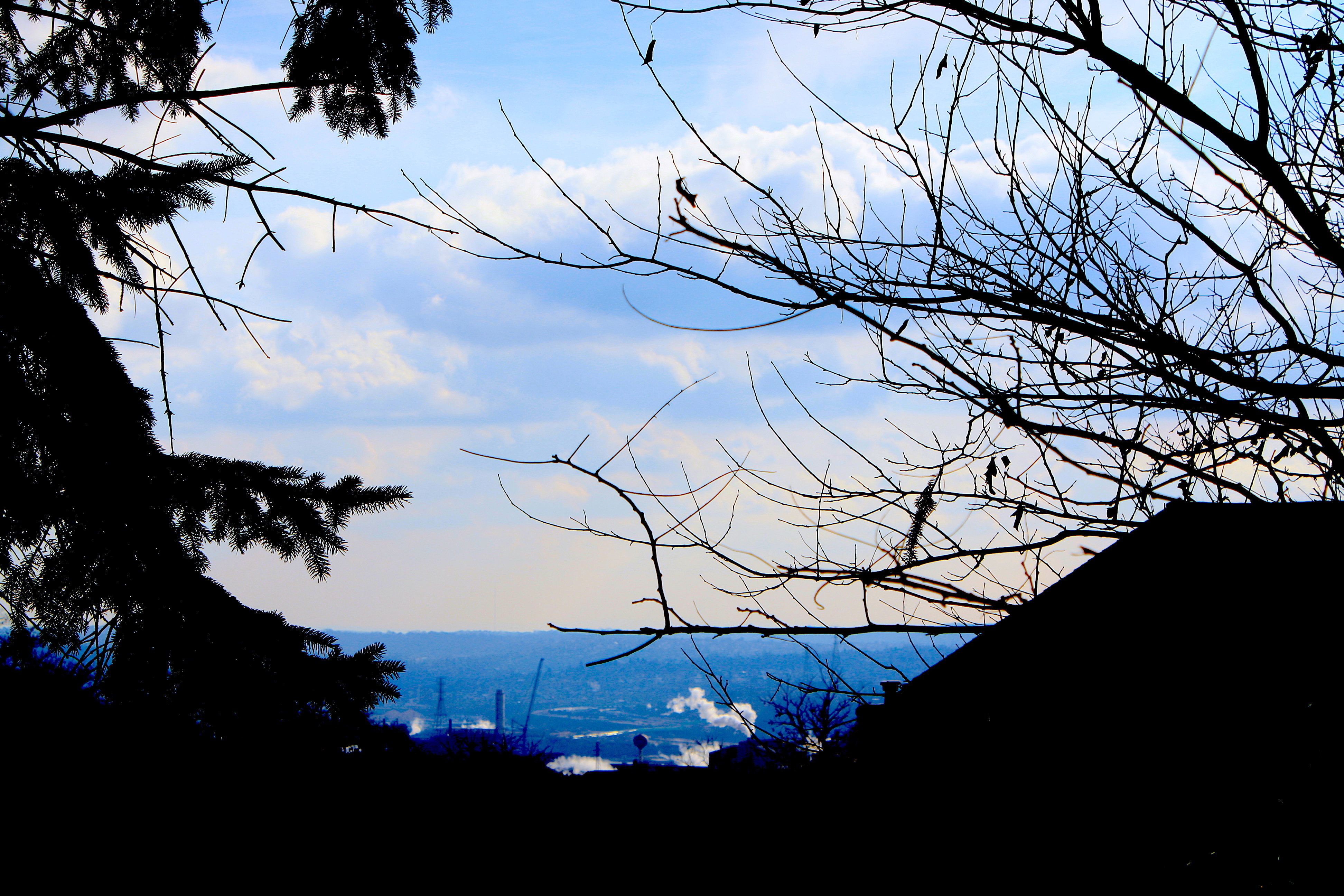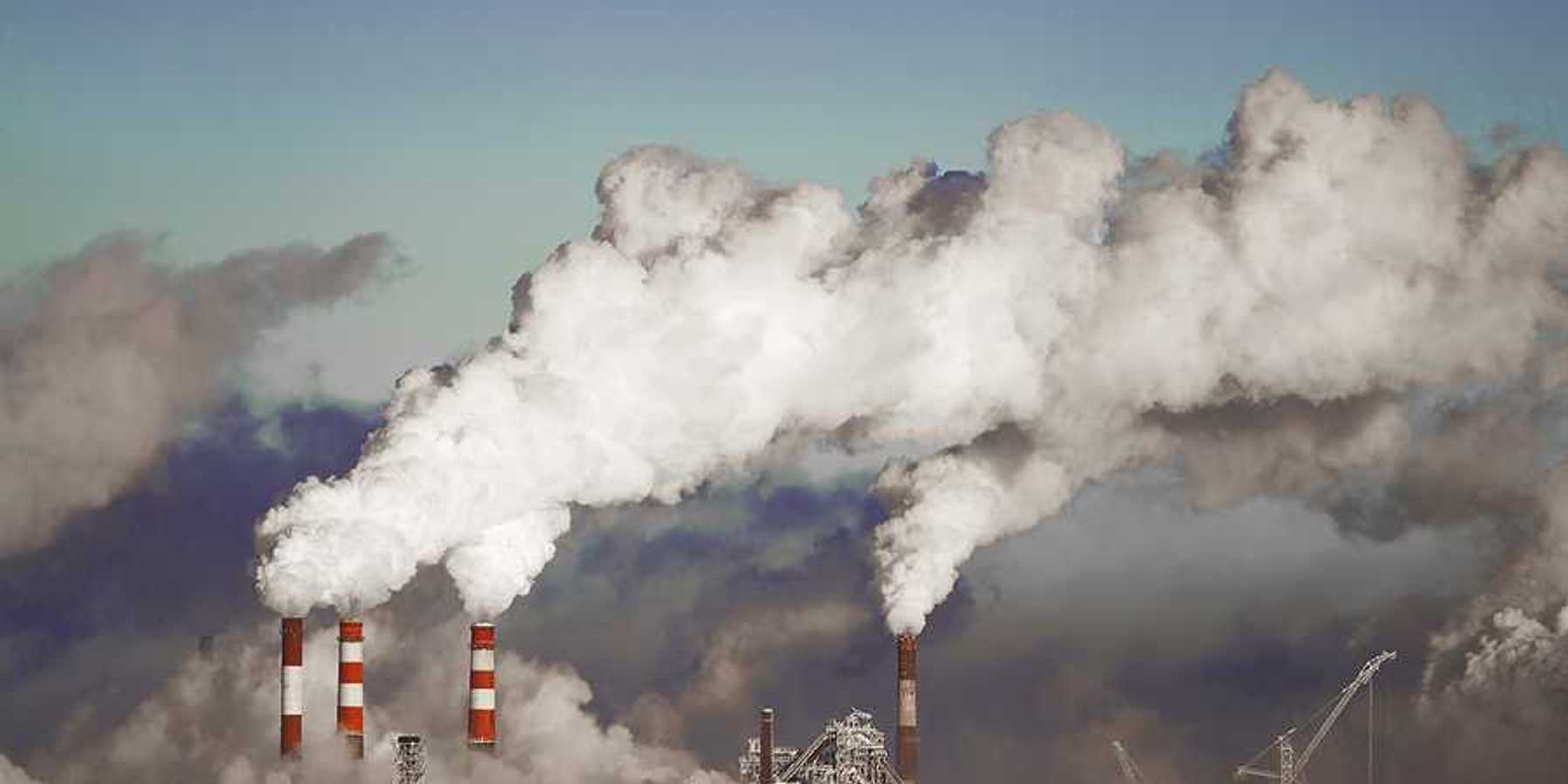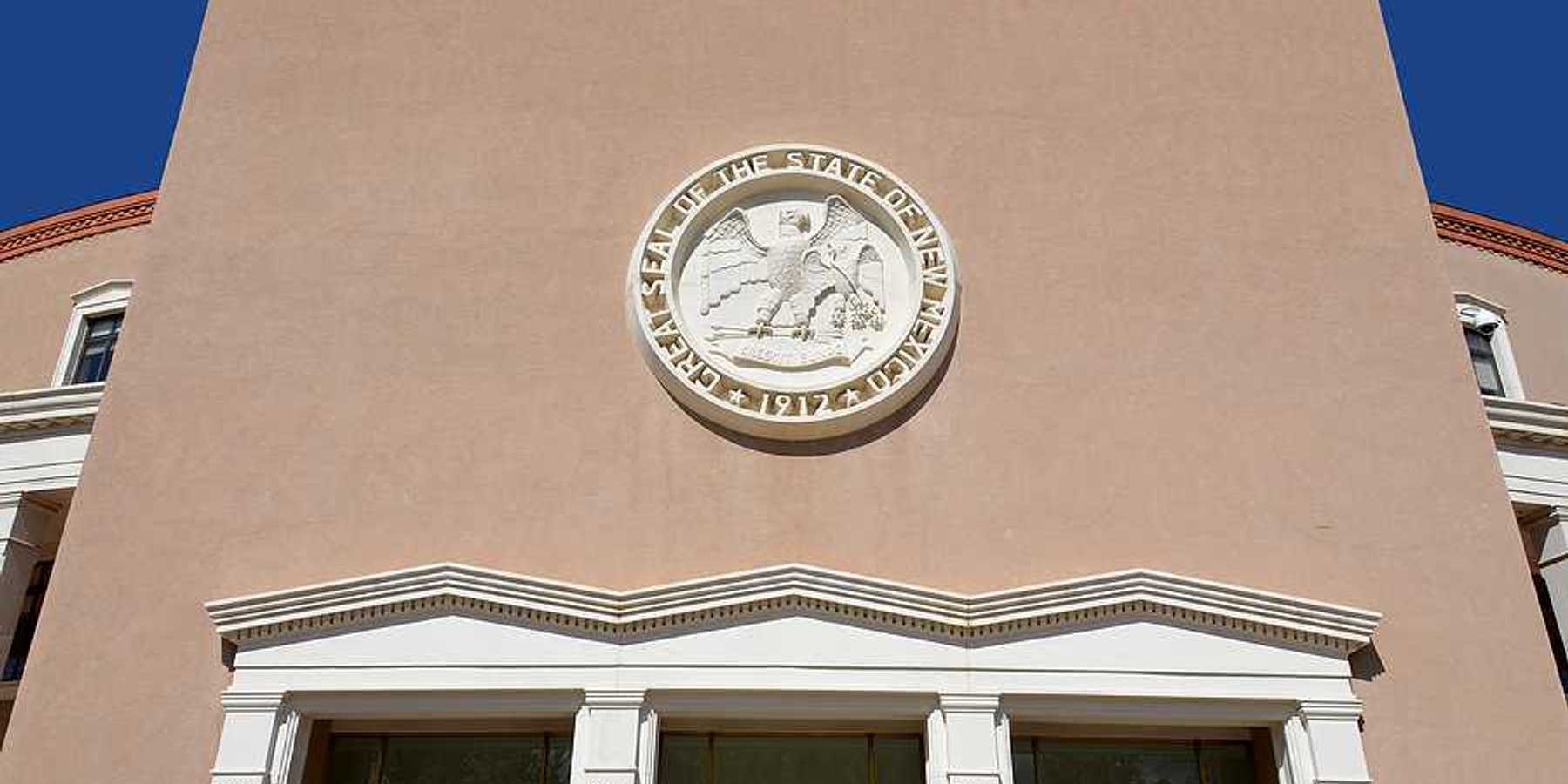
What I learned writing about the environment in Pittsburgh in 2018
It's been a big year.
PITTSBURGH—My family's ties to Pittsburgh run deep.
As a teenager, my grandfather worked summers at the Heinz ketchup factory long before it was converted into lofts. My great-grandparents ran a speakeasy beneath the Sixteenth Street Bridge.
I didn't grow up here, but eventually those roots called me back. I've been here six years, and I feel like a local—but with the gift of an outsider's perspective.
I'm proud to have brought that perspective to Environmental Health News as their Pittsburgh reporter. And, while my history and place in Pittsburgh has informed my reporting, the reporting has also given me a fresh look at my relationship with my city.
The view from the hilltop

The view of the steel mill from my yard. (Credit: Kristina Marusic)
About a month after I started working for EHN last year, my partner and I bought a house in a small neighborhood called Braddock Hills, about eight miles east of downtown Pittsburgh.
Our home is perched at the tippy top of one of the neighborhood's many hills, and just outside my front door is a sweeping view of North Braddock, where I can see perpetual plumes of smoke coming out of U.S. Steel's Edgar Thomson mill. Andrew Carnegie opened it as his first steel mill in 1872, and it's one of the last remaining places in the region where steel is still manufactured. Inside my house late at night, I can hear the whistles of trains hauling steel slabs along the Monongahela River toward the company's nearby Irvin Plant, where they'll be rolled into sheets for use in appliances, cars, and construction materials.
Being on the hilltop helps, but on warm days I can still smell the mill: An acrid rotten egg scent tinged with something that smacks of burning electronics. When I look at the Smell Pittsburgh app, which maps residents' reports of smells and symptoms they suspect are related to air pollution, I can see that it's worse for my neighbors down the hill. They report the same smells, but to a worse degree, along with headaches, nausea and burning eyes on bad air days.
If I wasn't covering environmental health full time for EHN, I might not know that the mill has repeatedly exceeded clean air regulations in its emissions of air toxics like nitrogen oxides, volatile organic compounds, coarse and fine particulates, sulfur oxides, and carbon monoxide, among other toxic and carcinogenic air pollutants. Or that last year the plant signed a lease with an oil and gas company to begin fracking operations at the site—and that people's proximity to fracking wells has recently been linked to a range of health impacts including asthma, birth defects, cardiac disease and depression.
A legacy of pollution with links to social justice

Me with my sister and my partner. (Credit: Kristina Marusic)
My family has had its share of health problems. My dad, who did grow up here, survived a benign but difficult-to-remove brain tumor a decade ago. My younger sister, who has lived in Pittsburgh for nearly 15 years, is in remission from thyroid cancer after being diagnosed at the age of 25. My partner has a rare autoimmune disorder, and his younger brother survived a one-in-a-million cancerous brain tumor two years ago.
Doing this work has made me more aware of the fact that the environment plays just as much of a role in our health as do genetics. And while the knowledge that Southwestern Pennsylvania's long legacy of industrial pollution may have contributed to my family's illnesses can feel overwhelming, covering this topic in this region has also made me feel empowered to be part of the solution.
Through my reporting on Pittsburgh's childhood asthma epidemic, I raised awareness among local and state politicians who were unaware that Pittsburgh's air pollution remains a serious threat to children's ability to breathe.
I also connected with policy-makers, activists, and scientists in the region and far beyond who are aware of the problem, and are working across systems to make the region safer and healthier for all of us.
When I first began reporting on asthma, I didn't realize that Woodland Hills, a local school district where 23 percent of children have asthma (compared to the national average of 8 percent), is so close to my house that when school's in session I can hear kids shouting during recess and cheerleaders practicing after school from my porch.
Woodland Hills is also the former school district of Antwon Rose, the unarmed 17-year-old who was killed while fleeing police in August—a moment that galvanized the community and ultimately resulted in the disbanding of the small, scandal-plagued East Pittsburgh police department.
That's part of why, while asking politicians how they intend to address the asthma epidemic, I had a long conversation with newly-elected state representative Summer Lee, one of a group of young, female democratic socialists to make national headlines this year, about what police violence and air pollution have in common. As it turns out, it's a lot: The communities hardest hit by racism and economic disenfranchisement are also the communities most likely to have disproportionate rates of cancer, birth defects, and asthma as a result of polluted air and water. And it's impossible to address just one of those injustices without addressing the need for systemic change.
In this role, I've also been able to see how my reporting on environmental health and justice fits into all the other impactful local reporting that's happening in the region, particularly through my involvement with local press clubs including the Association of LGBTQ Journalists, the Women's Press Club of Pittsburgh, and the Online News Association. I'm grateful to be part of a community of talented journalists here who are dedicated to shining a spotlight into all the dark corners.
Focus on the community
During the years I spent freelancing before joining EHN, I wrote about a range of social justice topics for a slew of national media outlets. Sometimes my reach felt big: Some of my stories had millions of pageviews and were shared by celebrities and politicians. But sometimes I still felt like I was shouting into the void. It was nice knowing that people read and shared my content, but was I actually making a difference? Was any of it making the world better?
I've always been driven by the belief that good, true storytelling can create meaningful change for good. Part of my mandate in this position has been to create impact—to speak truth to power in a way that empowers the community and facilitates change. It's a challenge I continue to feel humbled and honored to have.
Now, instead of wondering if I'm shouting into the void, I feel like I'm talking with my own community about what we can do together to make at least our corner of the world a better, more equitable place.














